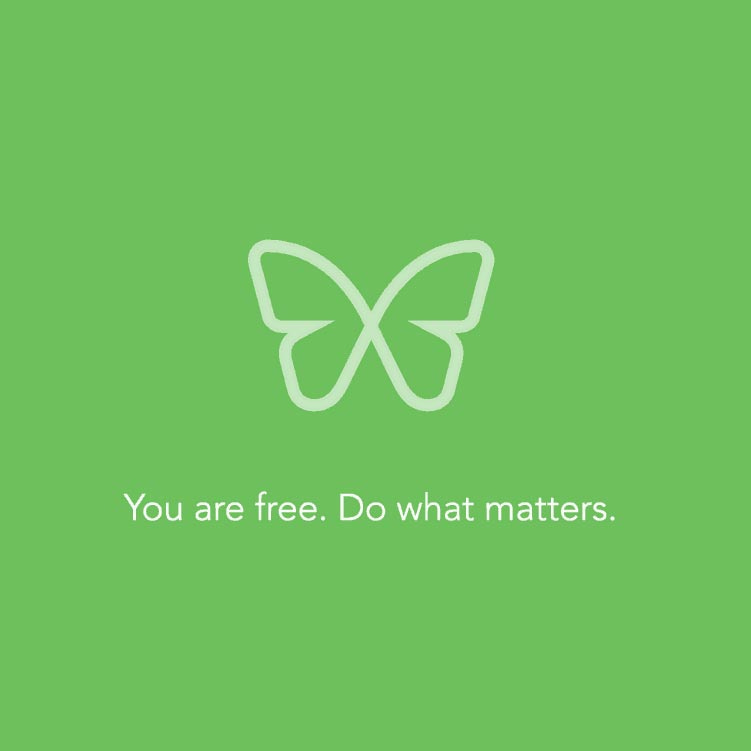✍️ Are You Prone to Distrac... Squirrel!
or, How to Turn Off the World So That You Can Focus on Writing Yours
Ms. Smith, a young writer at the time who already had some acclaim, developed what she indirectly called an addiction that distracted her from writing: Facebook.
“I quit Facebook about two months after I’d joined it,” she wrote in a New York Books article. “As with all seriously addictive things, giving up proved to be immeasurably harder than starting. I kept changing my mind: Facebook remains the greatest distraction from work I’ve ever had, and I loved it for that.”
Soon after, Ms. Smith was one of the top name-dropped writers for a tool called Freedom, an app that locks you out of your Internet at the press of a button. You select the time limit and like a time-lock safe, your computer doesn’t open up again until time is up so you can safely get some work done.
One of those people name-dropping Ms. Smith was Julian Lucas. He waxed poetic in this New Yorker piece that with the advent of the computer, suddenly it was too easy to edit. To extrapolate his thoughts: whereas before we’d just keep typing because it was damned inconvenient to go back and correct until later, now we can take an instant to tweak that last passage. And then another instant.
And another instant.
And another.
...
This editing-while-writing-while-editing is, like most things in life, fine in moderation. But the real danger is that it can send us into a negative feedback loop – not to mention an endless editing loop when we should be writing instead.
It also illustrates that distraction in the Digital Age isn’t just Facebook and email and shopping on Amazon.
We’ll get into that and more in a moment. But first it’s worth pointing out that, Ms. Smith – Zadie Smith – was so thankful to her Freedom app for helping her concentrate on writing that she included it in the dedication page of her novel NW. That’s the power of distraction – and the power of getting rid of them, too.
The Two Faces of Distraction
Distraction is a killer for many writers. We dream about having all this time to write. Yet when we have it, sometimes we feel guilty we’re not spending the time doing something else. Classic distractions include laundry and dishes. Some people need to have these done to concentrate. Others... is it a coincidence that the carpet suddenly needs a good vacuum the moment you sit down to write?
When (or if) they do sit down to the computer, we suddenly need to check email or Facebook or that video of the dog on the surfboard – you know the one.
Clearly there are at least two different kinds of distractions: the ones that stop you from sitting down to write and the ones that stop you from writing once you’re sitting down. Both types of distraction kill productivity and can even kill creativity.
As with many of the fears and barriers we’ve talked about in these pages, this isn’t a “beginner writer thing”. Professional writers and novelists give in to temptation, too. Zadie Smith, Nick Hornby (About a Boy, High Fidelity), Nora Ephron (When Harry Met Sally, You’ve Got Mail), and Jonathan Franzen are just a few of the many writers who have admitted to being driven to distraction when they should be writing.
Luckily, there are a few things we can do to ward off both types of distraction.
Schedule in Distractions that Stop You from Sitting Down
That’s right – give in to the inevitable! If you need the dishes done or you won’t be able to think, then plan to do the dishes 15 minutes before your scheduled writing time. Same with laundry and vacuuming and painting the fence. Whatever task you need to do, schedule it before your writing time.
I’ll follow up with the caveat that Life can sometimes get in the way of your writing. If a kid is running a fever, going to Emerge is a perfectly good excuse for not writing. But dishes and laundry? No. Do them before or plan to do them after. Make writing a priority.
Stop the Distractions that Disrupt You after You’re Sitting Down
There are a ton of tips and tricks and tools out there to help cut out distraction. They are largely out-of-sight-out-of-mind tricks to hide temptation behind a curtain. This can be done by literally separating you from the distractions or forcing you to concentrate on the page in front of you.
First, the software and gadgety ones:
Freedom - https://freedom.to/ The Internet blocker mentioned above that Zadie Smith raved about in her NW dedication. Blocks everything from connecting to the Internet.
Self Control (Mac) - http://selfcontrolapp.com/ The other Internet blocker in Zadie Smith’s dedication. Blocks everything from connecting to the Internet
Marinara Pomodoro Timer (Chrome Web Browser) - https://chrome.google.com/webstore/detail/marinara-pomodoro%C2%AE-assist/lojgmehidjdhhbmpjfamhpkpodfcodef?hl=en Simple timer for when you’re doing the Pomodoro Technique https://todoist.com/productivity-methods/pomodoro-technique
FocusWriter (Windows, Linux) - https://gottcode.org/focuswriter/ No-frills word processor
iA Writer (Windows US$30, Mac US$50US) - https://ia.net/writer Some-frills word processor
Freewrite (CA$702-$1,406) - https://getfreewrite.com/ Standalone word processor/typewriter Extra points for the cool factor, which is balanced by the price.
Now, the some DIY tricks you can try to avoid distractions:
Write by hand. You can’t watch TikTok videos on your Hilroy spiral pad! Make sure you ditch the phone and any other electronics you may have.
Turn off your monitor. You can still type, but you can’t see. This method has the added bonus of reducing the chances that you’ll go back and edit when you should be just typing words.
Use an old laptop and disable the WiFi. Most of us have some old laptop that’s next to useless. However, if it turns on, it’s probably good enough to run a basic word processor like Notepad. Get a thumb drive to transfer the results to your work computer. (You probably have an old one of those kicking around, too.)
Good vibes only. Distractions are sometimes a symptom rather than the problem. In other words, we look for something else to do other than writing because we’re scared or unsure of plot or suffering from imposter syndrome or one of the other many things. Good vibes only may help you overcome those bugaboos.
Turn off spellcheck. Just heard this one at a workshop I attended. If those squiggly lines make you stop and fix, turn them off. You can fix in the editing stage, not the writing stage!
Change your font to Wingdings. …or some other graphic font. This is another idea I heard at the same workshop. Unless you’ve memorized every single wingding, you’ll never know what you’ve written until after you’re done writing. (Extra points if you use the old laptop idea above and uninstall every font BUT Wingdings.) Editing and fixing spelling becomes impossible!
Key Takeaways: Distractions can kill both productivity and creativity. That’s why it’s so important to get rid of them. There are several tools and tips out there to help you focus on the writing at hand. If you’re prone to distraction, then finding ways to overcome them that work for you is crucial to keeping productivity and creativity alive.
Over to You: How Do You Avoid Distraction?
Let us know your tips and tricks for overcoming distraction in the comments below.
Today the video I leave you with is, of course, Squirrel! by Dug the Dog. A classic anthem to distraction.
Until next time, keep writing with wild abandon!
~Graham
email me if you get lost.







Every whatsapp notification, every chrome tab, there's just so much distraction out there! Thanks for this reflective guide, you're doing God's work.
I like this Graham and think you’re pretty much right on with all the advice. But ... 😀 I’ll also say that when my head is on straight and I’ve got a strong sense of purpose, it’s easy to sit down and write. When it’s hard to sit down and write, I try to take note of that, to ask myself what’s going on that’s blocking me. Sometimes just identifying that 1) I have a blocker and 2) it’s okay to set it aside, are enough. But I’ve been a little, uh ... unproductive of late, maybe it’s time for me to try freedom.io